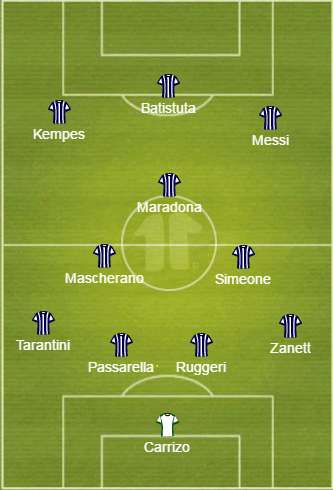Poker Chess Reddit
- Poker-Playing Libratus Computer Goes Well Beyond Chess A.I. Professional poker player Jason Les plays against 'Libratus,' a computer program, at Rivers Casino on the North Shore in Pittsburgh, Wednesday, Jan.
- That’s why she says life is poker, not chess. In her national bestseller, Thinking in Bets: Making Smarter Decisions When You Don’t Have All the Facts, Duke explains that chess is an orderly, skill-based game where decisions are easily evaluated.
By John Millen
As leaders we often have to make difficult decisions with limited or conflicting information.
And the decisions we make will be judged based on the results they produce. That seems fair, doesn’t it?
Your answer is likely “yes” and this points to a problem that we humans have in evaluating and making decisions.
Annie Duke, a poker professional, says she and other players call this tendency “resulting.” That means we judge a decision based on its results, which are subject to good or bad luck, not the true quality of the choice we made.
That’s why she says life is poker, not chess.
In her national bestseller, Thinking in Bets: Making Smarter Decisions When You Don’t Have All the Facts, Duke explains that chess is an orderly, skill-based game where decisions are easily evaluated.
“When I first started playing poker,” she writes, “more experienced players warned me about the dangers of resulting, cautioning me to resist the temptation to change my strategy just because a few hands didn’t turn out well in the short run.”
Duke says decisions in life are more like poker, where a player makes choices affected by limited information, active competitors and the whim of luck.
Duke explains the hazards of resulting:
Take a moment to imagine your best decision in the last year. Now take a moment to remember your worst decision.
I’m willing to bet that your best decision preceded a good result and the worst decision proceeded a bad result.
This is a safe bet for me because resulting isn’t just something we do from afar. Monday Morning Quarterbacks are an easy target, as our writers and bloggers providing instant analysis to mass audience.
But, as I found out from my own experiences in poker, resulting is a routine thinking pattern that bedevils all of us. Drawing an overly tight relationship between results and decision quality affects our decisions every day potentially with far-reaching, catastrophic consequences.
“Dumbest call”
Duke uses one of the most controversial decisions in sports history to illustrate her point. In 2015, the Seattle Seahawks were on the one-yard line of the New England Patriots with a second-down chance to win the game. With a super strong running back, everyone expected a handoff, but coach Pete Carroll called for a short pass.
The pass was intercepted and the Patriots went on to win the Super Bowl. A few lonely voices supported the decision, citing for instance that passes from the one-yard line were only intercepted 2% of the time, but most agreed with the headlines:
Washington Post: “Worst Play-Call in Super Bowl History”
USA Today: “What was Seattle Thinking with Worst Play Call in NFL History?”
FoxSports.com: “Dumbest Call in Super Bowl History Could Be the Beginning of the End for Seattle Seahawks.”
Duke writes that “Carroll got unlucky…He made a good-quality decision that got a bad result. Pete Carroll was a victim of our tendency to equate the quality of a decision with the quality of its outcome.”
We may not have the Super Bowl on the line, but all of us make bets in our business and personal lives. Based on our beliefs and experiences, we make the choice we believe will result in the best outcome for our future selves. Yet we can never be certain.
Calibrate your beliefs
Duke encourages us to develop the skill in life “to be a better belief calibrator, using experience and information to more objectively update our beliefs to more accurately represent the world.” To learn more about overcoming your mental biases, here’s what I wrote in 2018: Challenge Your Beliefs.
Try Duke’s exercise yourself: What was your worst decision of 2019? What was your best decision of 2019?
If your answers are about results, it might be time to redefine what you view as “wrong” decisions versus poor outcomes.
You may also find that “bad” decisions by you or your team were really just bad luck with bad results.
Here’s to better quality decisions and better outcomes, and knowing the difference, in 2020.
John
P.S. –– Just visit my contact page to share your thoughts and stories with me directly.
If you know someone who could benefit from these tips, please share this newsletter with the buttons below. If this was forwarded to you, you can reserve your own subscription with the button below.
Jennifer Shahade playing chess at the UKIPT event. This column was inspired by n10juan over in our Italian community, who is a big chess and poker enthusiast. People who do not understand poker would likely laugh if it were compared to chess. The world of games has seen many hybrids over the years, but the most recent addition, CHOKER - described as a cross between the brilliance of chess and the cunning of poker and recently released.
Chess and poker are two games which include a lot of calculations by the players in a game.
There is some degree of similarity between the styles and complexity in the games which have seen a lot of players switch between games, especially chess players who have switched over to play poker to earn a few bucks.
Poker Chess Reddit Download
There has been a raging debate for quite some time regarding which game is more difficult or complex.
Poker players would side with their game and chess players would side with theirs but to answer this debate we would have to look at both sides of the equation.
Also read: Are you bored of online poker?
EXCLUSIVE BONUS CONTENT
Get this article as a beautiful, easily save as a PDF or print for daily use.
Get an amazing infographic covering this topicto share with your friends.
Get a free copy of our popular eBook “21 Secrets to Dominate the Poker Tables Like a Pro“.
One on one and one on many
A complex equation.
The first point of difference which brings in the complexity equation is the number of players you play with on a regular basis.
Chess is mostly played as a one on one game while poker can start with multiple players playing against you on a table.
Poker Vs Chess Reddit

This creates a certain level of complexity for the poker player since he would have to keep a watch on 4-5 other players rather than just the one who would have played against him in chess.
Poker Chess Reddit Free
As we all know, every poker player is different and keeping a track of the styles throughout the game would not be easy for a poker player. With practice this can change, chess players though have to worry about just their one opponent and no one else, so poker wins this round in the sense of complexity.
The analytical aspect of the game
Chess and poker players both need to be analytical while playing their games; chess players spend hours training and learn about a multitude of defenses and strategies to counter those by the opponent.
Chess players have an added advantage of playing against just one opponent and can learn about each move of the opponent in detail, while poker players dealing with so many opponents can feel a little overwhelmed when it comes to that.
Of course, the analysis done in real time about just what each player can do is much greater in the poker game as there are so many factors (players) to look out for, the same might not apply to chess but the sheer number of strategies running around in the head to counter one move should not be taken lightly.
Humans play a big role as well
Some similarity to poker cards.
This is where certain things play out in poker, every poker player knows about the ‘tells’ each player has and the fact that a lot of poker players bluff while playing the game.
This aspect makes poker a little difficult and complex to deal with.
You might say one thing but do something else at the table in a poker game. There is also the fact that players spend hours learning how they can use the ‘tells’ of their opponents to their advantage, there are many books which deal with just the ‘tells’ and how to deal with them.
Chess does have an element of the human opponent having a tell but the bluffing does not apply because the only moves you can pull off is what you actually do on the chess board.
The bluff is something which can turn a game around and has to be kept in mind while playing poker, not true when playing a game of chess though.
Luck or skill?
This is one factor which has been debated for a long time regarding poker.
The game does have an element of luck; you do need some luck to win a lot of poker games.

Skill is something that is required to do well in almost every game but luck is a huge element while playing poker. Chess players have a lot of skill to deal with the plethora of strategies going on around in their head and on the board.
This is not to say that poker players are not skillful or don’t require skill to win games but the luck factor does make poker a game which can throw a few surprises and can do make a little bit more complex compared to chess.
Man and machine
Machines are taking over.
Everyone knows about the computer that actually defeated Gary Kasparov, the chess world champion. In 1997 Deep Blue defeated Kasparov and the whole gaming community went crazy as to how a computer was able to take down a world champion (something that had never happened before).
This loss has provided fuel to the fire for this question and analysts have said that poker players cannot be defeated by computers because of the telling factor and also the fact that luck is involved hugely in poker games.
What many would not know is that a new computer program has been made which claims that it will not lose to any poker player.
Cepheus, developed by a Finnish software company has cracked the code to play Texas hold’em poker, although this is only for the two player game, this is a huge step in ensuring that the ‘machine’ factor is not brought into the complexity debate.
Two great games but no real winner
To be honest both games are complex and tough to master in their own respective ways.
While you do not play with many opponents in chess, you know almost every defense and strategy that your opponent can use and vice versa. Knowing what someone else might do and then recalculate to counter that move is tough in itself.
Poker has the element of bluffs, tells and lucks, which can be a fickle mistress. Sure you can be on a crazy winning run and see it come to a halt all of a sudden and the opposite can happen in the game of poker as well.
The one thing which makes this game complex is the players you play against and of course, that is also one of the most appealing facets of the game of poker.